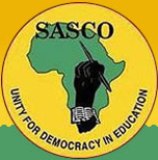 I write this at the time where UCT students have just finished voting for their favourite independent candidates and political parties towards the SRC elections. It comes as no surprise that the composition of UCT SRC leadership is always competitive and the whole country takes great interest in its proceedings as the top university in South Africa and Africa as a whole.
I write this at the time where UCT students have just finished voting for their favourite independent candidates and political parties towards the SRC elections. It comes as no surprise that the composition of UCT SRC leadership is always competitive and the whole country takes great interest in its proceedings as the top university in South Africa and Africa as a whole.
The aim of this artefact is to ascertain as to which of the electoral processes is relevant at UCT in the current disposition. Whether UCT should use a purely political party-based system or an independent-based system or not?
Throughout my undergraduate at UCT and even currently as a postgrad candidate, the controversy around this matter has never came to a rest. It is for this and many other reasons that I took interest in writing about it.
The current structure of the electoral process at UCT is one of a mixed system which accommodates both political parties and independents to contest for SRC seats. There are two major political rivals at UCT namely the South African Student Congress (SASCO) and Democratic Alliance Student Organisation (DASO). Agang South African Student Organisation (Agang SASO) emanating from the newly formed party by Dr Mamphele Ramphele has just recently gave birth at UCT just over a month ago, however, hasn’t shown its interest in contest for SRC election perhaps because of its infancy stages.
For many years the two dominating student political parties have gone neck on neck with each other in quest of getting the majority in the SRC. The 2013-14 SRC election results yet again demonstrate that only 4 of SASCO members made it to the SRC while DASO managed to secure 6 seats. Their vibrancy and their commitment in trying to shift UCT policies over the years have earned them the recognition and the legitimacy to perhaps want this university to purely adopt a political party-based system. These parties have in the past found themselves been frustrated by independents who ran for SRC with the ambitions of holding executive positions, a good example of such independents are the likes of the former SRC president Mr Sizwe Mpofu-Walsh and the current president Mr Lorne Hallendorff. These candidates proved beyond doubt that there is space for an independent-based system and its leadership can be just as effective if not better. It also became evident with the 2013-14 SRC election results which show yet again that independents won the majority of seats in the SRC. Some of the independents got together under the auspices of BLVCK which managed to get all of its 4 candidates safe into the SRC, while the other 4 independents made it too leaving the SRC dominated by 8 independents in total. The rest of the seats are shared between SASCO and DASO who differ with each other by a small margin of candidates, two to be precise.
To respond to the topic at hand, a lot of factors must be taken into consideration. Some of these factors include; the values of democracy, the advantages and disadvantages of the two electoral systems.
The Values Of Democracy
Briefly, making reference of the work done by my learned friend Mr Sifiso Ndaba who is based at UCT, he articulated referencing other scholars that there is indeed a high degree of consensus among the scholars of political systems that any system premised on democracy should be bent on promoting the values of democracy. These traditional core values of democracy are liberty; participation; representation; accountability; responsiveness, and equity.
The two values that hold more premises to me in this regard are accountability and responsiveness. The former referring to a duty to explain one’s conduct and being subject to monitoring and evaluation by the electorate. In the context of UCT, this refers to how much the system allows the students to keep their representatives accountable to their actions. While the responsiveness in this case means that a student elected body can act as a responsive agent to the demands of their fellow students. The assumption here is that the SRC should play this role better because both the student representatives and students are subject to the same processes, laws and policies of the institution.
The Electoral System
The party-based system: Advantages and Disadvantages
This is beneficial because political parties offer support to their student political wings and candidates become more aware of what is going on in the university political arena, compared to an independent whose focus on the student politics might be periodical.
Moreover, continuation in the student governance is very important. In stances where a political party fails to make it to the SRC, the political party will still exist, this provides stability to the broader political system of the university, whereas, if the independent is unsuccessful the ideas, vision and policies he/she had in mind is more likely to evaporate.
Ndaba continues to articulate that disadvantages; however, are that, politics is good for a campus, but when parties see campus as places of development for aspirant politicians, and as a campus for parliamentary politics, the student body becomes divided. Also, most political parties are from outside UCT, they can, instead of looking after the student needs, push for party’s national agenda. Political based system makes it hard for a person who is a political party representative, to be held accountable by the students directly, as they are accountable more to their political party.
Independents-based system
The good thing about this is that, this system is very suitable for an environment that is characterised by diversity. Indeed, UCT is one the most diverse student body in the country. This allows even the groups that do not feel that they are being accommodated by the current political parties to participate in the system. Moreover, an independent system allows an individual to stand for, and advocate for what they personally believe in, without having to assimilate, and ‘parrot’ some of the policies he does not believe in.
Independent system promotes ability for one to think and act as one wish. Moreover, this system allows even the students that might feel that neither existing parties are representing their ideologies, views, and policies to participate.
Summary
My sentiments regarding the above–mentioned topic are in alignment with those of my learned friend Sifiso Ndaba and I conclude therefore to say that there is not best electoral system between the two and in answering whether UCT should use a purely party-based system or an independent-based system or not? The answer emanates from the discussion above and the empirical evidence provided that UCT SRC electoral system does not need to be changed purely to a party-based system or purely an independent-based system. My views are that it can still achieve the two democratic values (accountability and responsiveness) based on its current mixed electoral system still in place.
By: Thabang Motapanyane
Related articles
- Exposing UCT Exposed (thecheshirecat01.wordpress.com)
- Pink Week, What A Great Affair, – Not so ‘Frivolous’ For Some (pamstar.wordpress.com)
- UCT ‘needs more black students’ (iol.co.za)



